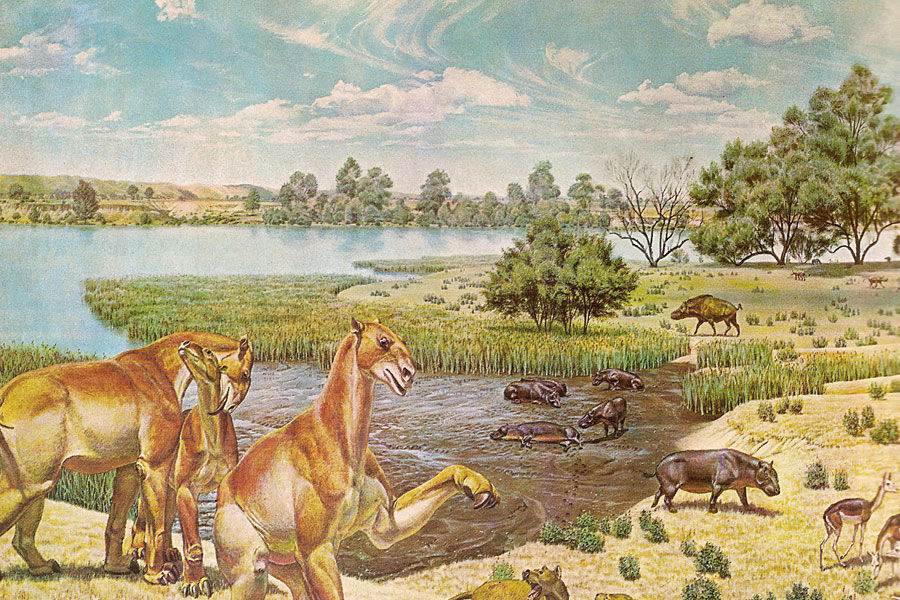It has been suggested that the cyanobacteria at Shark Bay are perhaps the slowest-evolving organisms on Earth, and certainly now they are among the rarest. Having prepared the way for more complex life forms, they were then grazed out of existence nearly everywhere by the very organisms whose existence they had made possible. (They exist at Shark Bay because the waters are too saline for the creatures that would normally feast on them.)

One reason life took so long to grow complex was that the world had to wait until the simpler organisms had oxygenated the atmosphere sufficiently. "Animals could not summon up the energy to work," as Fortey has put it. It took about two billion years, roughly 40 percent of Earth's history, for oxygen levels to reach more or less modern levels of concentration in the atmosphere. But once the stage was set, and apparently quite suddenly, an entirely new type of cell arose—one with a nucleus and other little bodies collectively called organelles (from a Greek word meaning "little tools"). The process is thought to have started when some blundering or adventuresome bacterium either invaded or was captured by some other bacterium and it turned out that this suited them both. The captive bacterium became, it is thought, a mitochondrion. This mitochondrial invasion (or endosymbiotic event, as biologists like to term it) made complex life possible. (In plants a similar invasion produced chloroplasts, which enable plants to photosynthesize.)












